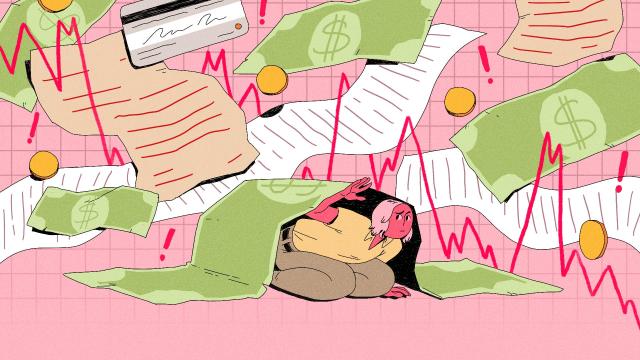Do you chronically put off mundane financial tasks like tracking expenses, paying bills, and filing taxes? Does even checking your bank account balance fill you with dread? If so, you may be a financial procrastinator.
Sure, nobody loves paying their bills. But the costs of financial procrastination can really add up. Missed payments lead to fees, interest charges, and damage to your credit score. Failure to save and invest early on can mean losing out on years of potential compound growth. Financial procrastination can prevent you from quickly detecting and addressing problems like fraud too. Here are some tips for identifying and addressing financial procrastination in your life, so you can regain a sense of control over your finances.
Are you a financial procrastinator?
Take an honest look at your financial housekeeping habits. Do you avoid checking your bank account, opening bills, or filing taxes until the last minute? Do you put off difficult money decisions? If so, consider why you procrastinate. Your relationship with your finances runs deep—it’s never as simple as being “good” or “bad” with money. Anxiety about money, having a scarcity mindset, feeling overwhelmed by financial tasks, or just a lack of confidence in your money management skills can all lead to avoidance tactics.
In short, when we live in a state of anxiety, we make worse financial decisions. Putting off tasks can result in late fees, interest charges, and other unnecessary costs. It can prevent you from dealing with problems early when they may be easier to address. And perhaps worst of all, it can make you feel like you have no hope of a more stable financial future. If any or all of this sounds like you, consider these steps you can take to address your bad money habits head-on.
How to overcome financial procrastination
Start small to build momentum
Tackle just one or two small financial tasks that you’ve been putting off. Build the habit of acting right away on manageable tasks. Getting down on yourself for your money habits can backfire in the form of fear-based decision-making. It can help to zoom out and celebrate your personal finance strengths so you have the confidence to keep making smarter financial decisions down the line. Small wins add up, and you may find your finances aren’t as bad as you think.
Make a plan and get organised
Break big goals down into specific, scheduled steps. Setting aside a few hundred in student loans per month is going to be easier to face than contemplating paying off thousands in debt. To make your goals more actionable, look into budgeting apps or other tools to automate and remind you of key tasks and deadlines.
When it comes to getting out of debt specifically, you don’t want to live in fear and stay in the dark. Here’s our guide to getting organized enough to pay off your debt.
For creating a fresh budget, a popular option to try out is the 50/20/30 method. But as I always say, the best budget is the one that works for you. Here’s our guide to getting your budget started.
Start healing your relationship with money
Making a budget is only a surface-level solution; sticking to a budget is extra tough when you’re ignoring the emotional root of your money woes. After all, we all have a money story—and it’s never as simple as “I’m bad with money.” For more, check out these steps to start healing your relationship with money.
Seek support if needed
If anxiety or lack of knowledge prevents you from making progress, consider enlisting help from a financial advisor, accountant, or money-savvy friend. You can even consider finding a financial therapist. Financial therapy combines financial advice with psychoanalysis, giving you a way to unpack the emotional or behavioural barriers to your financial well-being. If you do look into financial therapy, remember to approach the process with an open mind. All kinds of therapy require vulnerability and trust, and financial therapy is no different.
Be patient with yourself
Your approach to money is key to getting out of debt and building wealth. Still, old habits take time to change. If you slip up, get back on track the next day. Over time, new habits will form. The key is to start taking small actions regularly to build financial confidence and momentum, so that you can keep making better financial decisions for yourself.

Leave a Reply
You must be logged in to post a comment.